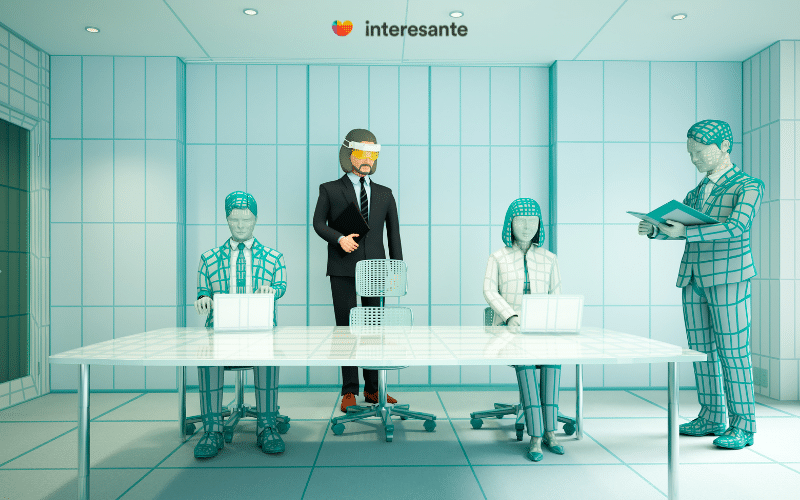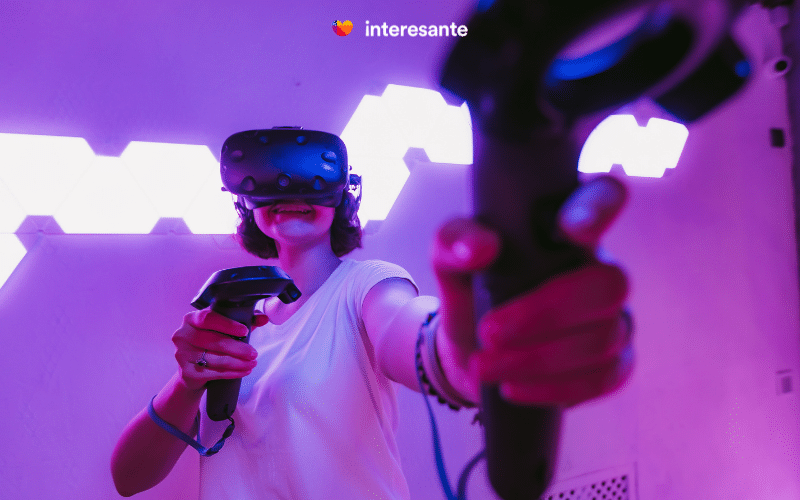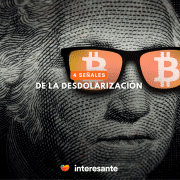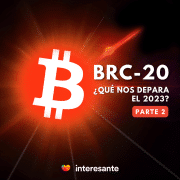Lector y amante de la etno-ficción.
The metaverse is a virtual reality space where people can live three-dimensional and sensory experiences through their avatars. The term originated in the science fiction novel Snow Crash (1992) by Neal Stephenson and has seen extensive development in the context of video games. Currently, after the announcement of Mark Zuckerberg’s Meta, there has been more talk of the metaverse.
What is the Metaverse?
Metaverse is a strategic combination of virtual social experiences that operate in the contemporary. These experiences broaden their horizons into three-dimensional environments, or they can be projected into the real world.
In addition to this, the metaverse allows different subjects to share collective experiences, even if they are not physically together. It also opens up the possibility of producing things that they could not do in the real world. Certainly, it can be considered the next step in the evolution of social technologies.
The most Mediatic Metaverse, but not the only one
In October of last year, the arrival of Meta was announced, a transmedia platform whose purpose is to bring the metaverse to its users. According to Mark Zuckerberg, this new social network experience seeks to connect communities and strengthen social ties through the virtual reality experience.

Meta’s proposal marks the beginning of a new path for social networks like Facebook and many other companies. However, while the release of Meta turned many people’s eyes to the concept of the metaverse, this is not Zuckerberg’s invention.
The Metaverse Originated in Science Fiction
Despite becoming the buzzword, the metaverse has its origins in science fiction literature. Specifically, it emerged in the novel Snow Crash (1992) by American writer Neal Stephenson. In this work, the story takes place in the not too distant future, where the discrepancies with our reality are measured, but obviously notorious. This is known as a dystopia.
According to the author’s narrative, the United States is not presented as a sovereign nation. Instead, the country is made up of a series of city-states controlled by large corporations.
These are known as burb-keys, which, from urban logic, allude to spaces located in the suburbs. These social niches can be targeted by particular cultural communities such as ethnic groups, immigrant communities, subversive groups, or belong to a specific brand or product.

The metaverse that Neal Stephenson conceptualized in Snow Crash is essentially the same one that has since evolved to accommodate different virtual zones in three dimensions. In them, humans are represented by avatars that interact in various ways. In anthropology, these spaces are known as meta-narratives and have been consolidated even before the metaverse in spaces such as social networks.
The most Active Metaverses are in Video Games
According to the criteria of transmedia narratives, in virtual worlds users can walk like an avatar and carry out different activities. For example, meeting people, playing, going to recreational spaces, buying and trying on clothes, etc. Within the metaverse, users have the ability to have practices similar to those they can have in the physical world.
These virtual universes remind us of video games called sandboxes like Second Life, Fortnite, or The Sims. Like the Meta approach, these have as their main objective to build social worlds independent of the physical world.
Some metaverses that are based on blockchain also allow users to imagine and fictionalize virtual real estate, everyday things, or social elements that do not exist in their real world. To make this possible, these metaverses have their own native tokens or cryptocurrencies and make up alternate economies.
Among them stands out The Sandbox with its token SAND, Decentraland with LAND, and Axie Infinity with AXS. Normally, these metaverses function as decentralized autonomous organizations or DAOs (Decentralized Autonomous Organizations), which is possible thanks to blockchain technology.
Other Metaverses beyond Meta and Video Games
The metaverse is still a difficult concept for many to understand, as it is still under construction. However, for practical purposes, its nature can be summed up in a not-so-complex issue: crossing the limits of 2D to 3D within our digital experience.
In some cases, companies or public figures enter preconceived or existing metaverses. Some examples that can be mentioned are the auction of an NFT that Coca-Cola launched in Decentraland, also the virtual house of Snoop Dogg in The Sandbox, or even the sale of items from brands such as Gucci and Vans in Roblox.
ENTER THA SNOOPVERSE. 💰
— Snoop Dogg (@SnoopDogg) December 1, 2021
SNOOP DOGG LAND Sale in @TheSandboxGame
🐶 tomorrow 8 AM EST 🌎
Snoopverse Early Access Pass droppin at tha same time. Lessgetit https://t.co/DZvSV4NNSc pic.twitter.com/U1HzHztYEV
In the context of education, Tec de Monterrey in Mexico created its innovative proposal for the Tec Virtual Campus, which seeks to take the experience of virtual classes to another level. More than 6 thousand students have already taken classes in this metaverse.

Bill Gates also assured that work meetings will soon migrate to the metaverse. He announced that Microsoft is already working on this proposal linked to Teams.
Opportunities of the Metaverse in Companies
According to a new report from Accenture, titled Meet Me in the Metaverse, companies need to be ready for the changes to come. Among the key Metaverse trends that will influence business processes are:
- WebMe: Let the metaverse work for us. It is about redesigning the internet to generate the metaverse that will be a continuous 3D environment. For example, BMW has built digital twins of thirty-one different factories with photorealistic 3D environments. It has different functions, such as training robots to move around the factory and bringing together designers from different countries to experiment with new lines.
- Computing the impossible: Today computers are capable of solving problems that would have been impossible before thanks to quantum computational tools. An example is Google in 2019, as it showed how a quantum computer solved a calculation in 200 seconds that would have taken the fastest computer 10,000 years at the time.
Are there One or many Metaverses?
If we pose the metaverse in the singular it is because we allude to it in a conceptual sense, but certainly, there is not only one metaverse. By stating it in the plural, we refer to all the augmented reality spaces that various entities have built. Perhaps at some point, they will all interconnect with each other and we can refer to it as just one.
Different metaverses still prevail today and not all of them are based on blockchain technology. For example, it is not yet clear how Meta will work, but certainly, the company’s history makes it very doubtful to think that it would work decentralized.
An Exciting Idea and Full of Expectations
With its proliferation, we will be able to experience multiple online activities in a more sensory way; we will be able to produce and tour spaces with the help of virtual or augmented reality technology. Even so, a crucial question remains: How will the metaverse affect the development of our lives if it modulates experiences that do not belong to the world of presence, but also not to that of absence?

Although there are many alternative metaverses or those that precede Zuckerberg’s, his proposal is highly mediatic due to the scope of his company. The expectations regarding what lies ahead in these new worlds of virtual reality experience will grow the more we talk about it. The question remains as to whether it will be possible to build a metaverse that is committed to the democratization of these spaces. Entities such as Goldman Sachs insist that the possibility of this being the case depends on whether its construction is based on blockchain.
What's Your Reaction?
Lector y amante de la etno-ficción.















